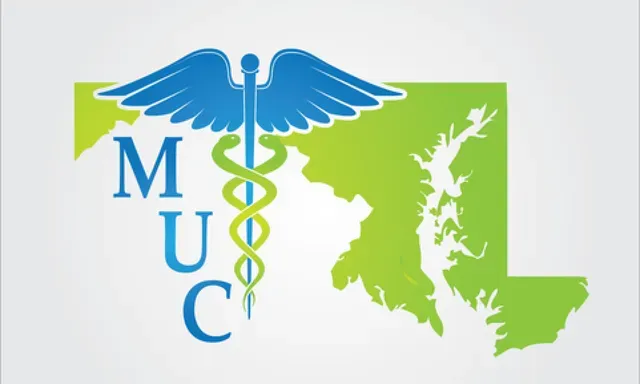
If you have obstructive sleep apnea (OSA), a sleep study could determine how it affects you. Sherif Hassan, MD, at Maryland Primary Care and Urgent Care in Lanham, Maryland, uses at-home sleep study devices to assess your condition and ensure you get the treatment you need. To find out how a sleep study could help you, call Maryland Primary Care and Urgent Care or book an appointment online.
request an appointmentWhat is a sleep study?
A sleep study is a diagnostic process that aims to find the source of your sleeping difficulties.
Sleep disorders are common, from insomnia (the inability to fall or stay asleep) to restless leg syndrome (where you feel compelled to move your legs constantly).
With some sleep disorders, like sleep apnea, you might not know there’s a problem because you don’t remember waking in the night. All you know is that you feel excessively sleepy, irritable, and unrefreshed during the day.
A sleep study can help you find the cause of your problem and address it, so you can get the good night’s sleep you need.
What does a sleep study involve?
Some sleep studies take place in special facilities where you stay overnight. You have monitoring equipment attached to you that records things like brain and heart activity. After your night’s sleep, the doctor analyzes the results to determine why you’re having difficulties.
For most people, obstructive sleep apnea (OSA) is the most likely reason for not sleeping properly. It’s so common that Maryland Primary Care and Urgent Care provides a simple at-home sleep study that records your blood oxygen levels at night.
OSA occurs when the soft tissues at the back of your throat droop and cover your airway when you sleep. Your brain detects that you’re not breathing and wakes you briefly, so you start taking in oxygen again. This can happen multiple times every night, but you’re unlikely to remember in the morning.
An at-home sleep study monitor is a device you wear overnight that measures how much oxygen is in your blood. If the levels drop too low, it’s a sign that you’re experiencing repeated episodes of oxygen starvation through the night.
What happens after my sleep study?
After your sleep study, you return the monitor to Maryland Primary Care and Urgent Care for analysis. If your blood oxygen levels are too low, indicating you have obstructive sleep apnea, your provider can offer treatments to help.
One effective way of managing OSA is to wear a continuous positive airway pressure (CPAP) device at night.
There are several kinds of CPAP devices, but in essence, they consist of a mask that you wear over your face when you go to bed. Air under pressure goes into your mouth, stopping the soft tissues from blocking your airway.
Your provider can also help you make lifestyle changes like losing weight and quitting smoking, which should improve your symptoms.
To find out more about sleep studies and how they can help you manage sleep apnea, call Maryland Primary Care and Urgent Care today or book an appointment online.
How can appointments be scheduled?
Appointments can be scheduled by reaching out to our dedicated team at 301-277-3555. Simply give us a call, and we will gladly assist you in scheduling your sleep consultation at our office. location.
In addition to the mentioned “Sleep Medicine” section, there are other sections included as well. Some of these sections include “Meet Our Experts” and “Insomnia.”
Who are the specialists at your clinic?
Our clinic is affiliated with a team of highly qualified specialists, all of whom are experts in their field. These experts span various fields, including pulmonology, psychology, psychiatry, neurology, dentistry, cardiology, and otorhinolaryngology (ENT). Working collaboratively with internal medicine physicians, they combine their areas of expertise to develop personalized care plans that comprehensively address all factors that may potentially impact a patient’s sleep. We are dedicated to ensuring optimal care for our patients by leveraging their diverse knowledge and skills.In their respective areas of expertise, these specialists work collaboratively with us to create personalized care plans that address all factors that could potentially affect a patient’s sleep. With a comprehensive approach, we provide the best possible care by considering various aspects of a patient’s health and tailoring treatment accordingly.
Does insurance typically cover the cost of diagnosing and treating sleep disorders?
Insurance coverage for diagnosing and treating sleep disorders is typically available as these disorders are considered medical problems. Many insurance carriers offer coverage for the costs related to both the diagnosis and treatment of sleep disorders. However, it is advisable to contact your insurance carrier directly to verify the extent of coverage available to you. Additionally, we can assist you in navigating the process of filing insurance claims to ensure smooth and efficient reimbursement for your medical expenses related to sleep disorders.
What are common sleep disorders discussed in the passage?
Common Disorders: Obstructive Sleep Apnea, Central Sleep Apnea, Narcolepsy, Nocturnal Myoclonus, Insomnia. Sleep disorders are common, from insomnia (the inability to fall or stay asleep) to restless leg syndrome (where you feel compelled to move your legs constantly). With some sleep disorders, like sleep apnea, you might not know there’s a problem because you don’t remember waking in the night. All you know is that you feel excessively sleepy, irritable, and unrefreshed during the day.
